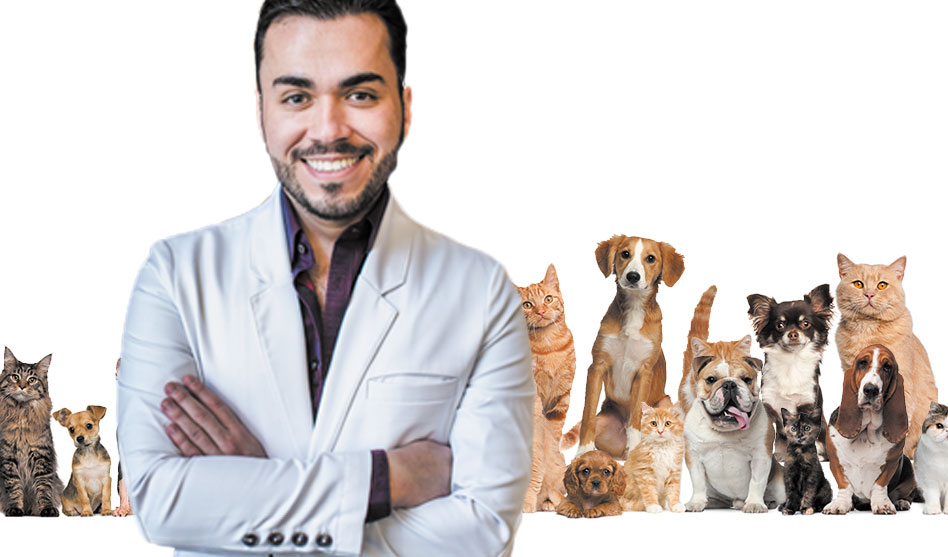 Welcome back, amigos y amigas! This column focuses on urinary issues. It seems many parents experience problems with their dogs and cats at least once, when it comes to inappropriate urination.
Welcome back, amigos y amigas! This column focuses on urinary issues. It seems many parents experience problems with their dogs and cats at least once, when it comes to inappropriate urination.
The term “inappropriate” urination includes different presentations. The most common things we see are straining to pee, blood in the urine and increased or decreased frequency of urination. You may also see larger or smaller quantities of urine produced, leaking urine, change in urine scent (stronger, foul smelling), licking privates (penis or vulva) and, with cats, urinating outside the litter box. Please keep in mind that these are usually observed in comparison to what is normal for each pet.
There are quite a few different causes of urinary issues. Some can be temporary and/or easily addressed, and some can be alarming and even life-threatening.
There are some medications — like steroids — that can cause increased urination. Some behavioral problems can lead to inappropriate urination; these include marking territory by an intact male dog or cat, submissive urination (happening when the pet gets excited or nervous) and even changes in routine or environment (Some cats and dogs will let you know they are mad at you by peeing where they are not supposed to).
Some babies, especially as they mature, can also suffer from urinary incontinence, just like humans do. We can also see dogs and cats develop urinary tract infections, which tends to be more commonly seen with females.
More significant causes of urinary issues include formation of crystals and subsequently bladder stones or grit-like material. These usually cause inflammation of the urinary tract and can also be related to bacterial infections, but they often lead to more serious issues where surgery may be needed to resolve the issue. If stones or grit material get lodged in the urethra, it can also lead to the inability to urinate, which would be considered an emergency.
Lastly, there are diseases that can lead to similar issues, which include diabetes and another condition called Cushing’s disease. These two will typically present increased frequency of urination, along with increased water intake among other symptoms. Cats can also present urinary problems with Idiopathic Cystitis (also known as Feline Lower Urinary Tract Disease or FLUTD), which is just a fancy term for inflammation of the bladder of unknown cause. This is not a well-understood condition, but we believe it is induced by stress or anxiety.
Another condition that can present problems with urine is, sadly, cancer. The most commonly affected urinary tract organ we tend to see with cancer is the bladder, but different parts of the urinary tract can be affected by different types of cancer.
Your doctor may suggest different tests to find the cause of the inappropriate urination, usually including urinalysis and blood work at the most basic level. Blood work may need to be more specialized if the basic blood work shows red flags. Your doctor may also suggest imaging, meaning radiographs and/or ultrasound, among other modalities. There will be times that a urine culture and sensitivity may be recommended to see if there are specific types of bacteria in the urine and what antibiotic option may be the best to use.
When it comes to treatment, it truly depends on what’s happening with your baby. Some of these issues may be addressed with behavioral management or environment control, and some may be addressed with medications or special, prescribed diets. Surgery may be recommended to address some causes of abnormal urination. Sadly, major therapy may be recommended if the cause of the issue is related to cancer.
Please be aware that multiple tests may be needed to achieve a diagnosis, and there will be occasions where nothing is found and a “diagnosis of exclusion” is made, which means that because the common causes that could be tested for were not diagnosed, we assume a specific condition that cannot be tested for is present. Any time you may see any urinary issues with your dog or cat, make sure you address them with your veterinarian right away!
As always, I am very thankful for your interest in reading my Woof column every month, and I hope they are educational! Please be safe out there, get vaccinated if possible, and be kind to one another. The world is “understaffed,” as they say, and we need to help each other out as much as we can. ¡¡Abrazos, mi gente linda!!
Dr. Josh owns Isla Veterinary Boutique Hospital at 14380 Marsh Lane, Ste. 110, in Addison, next to Tom Thumb. Contact him by phone at 972-738-1111 or visit IslaVet.com

